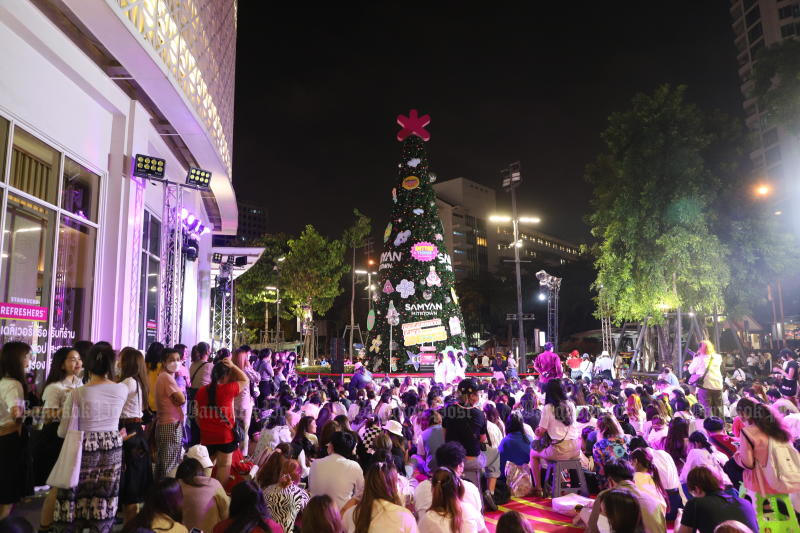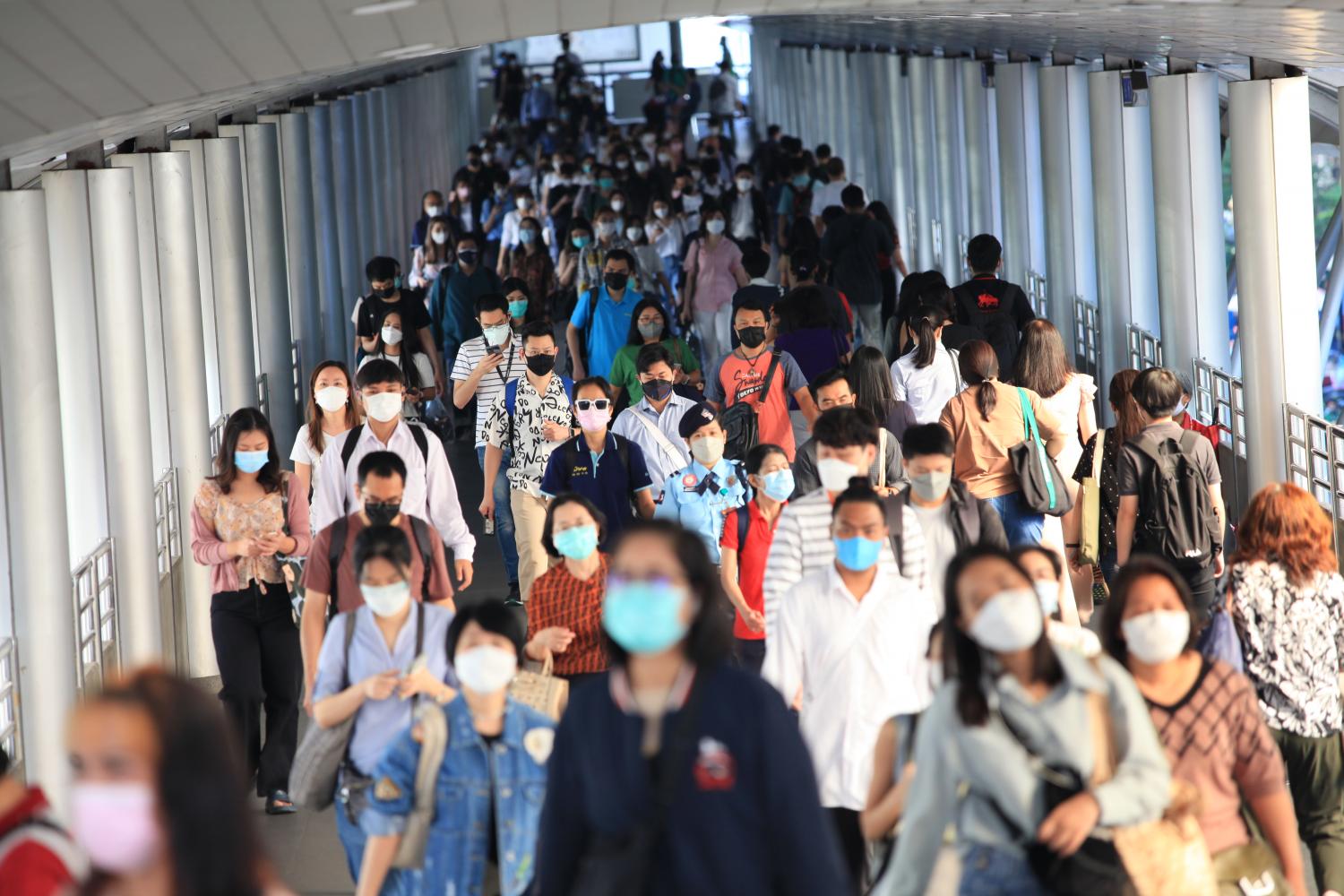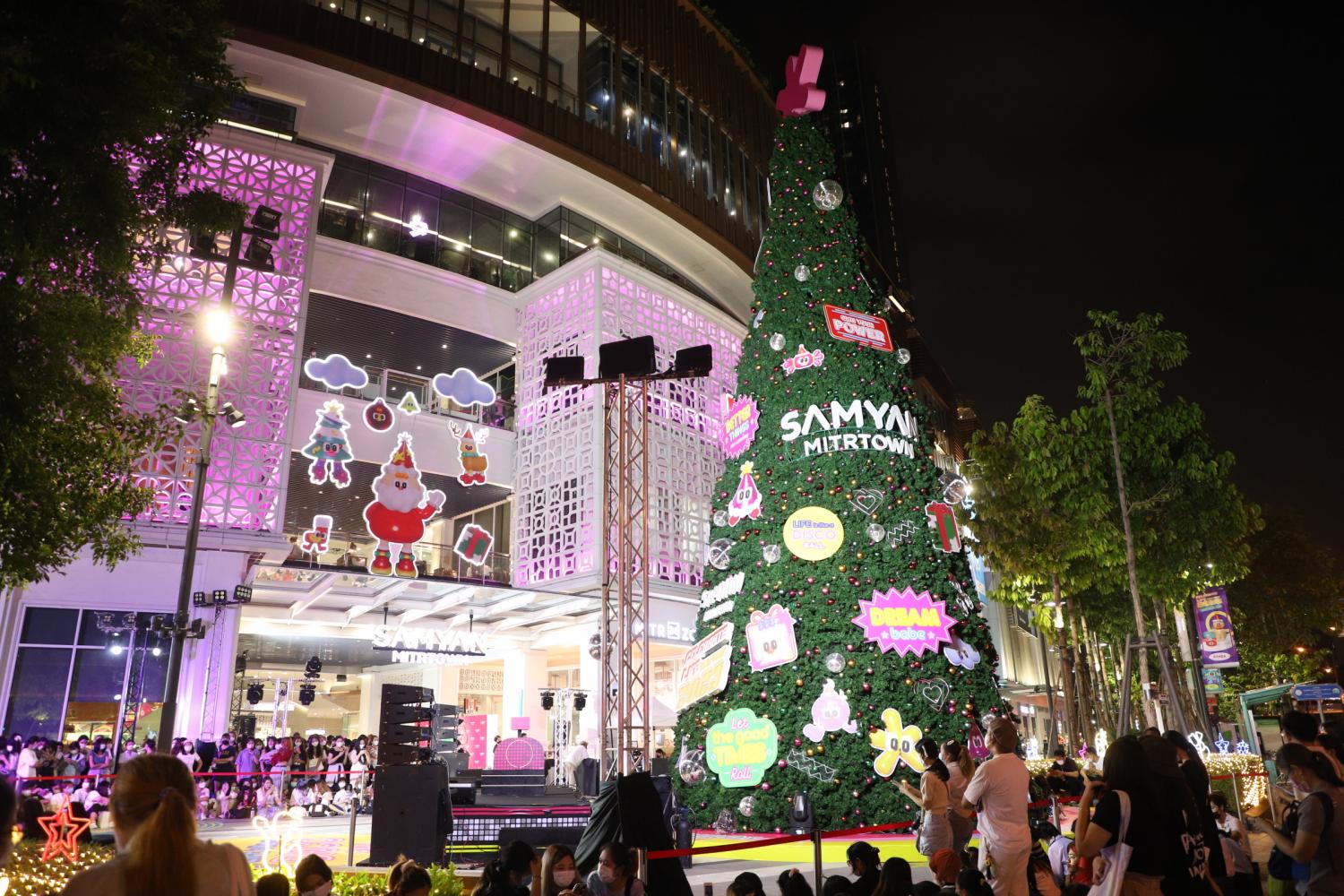
As businesses pin their hopes on a strong recovery in the final month of the year based on lively shopping activity, entertainment events and vibrant tourism, a fresh Omicron outbreak has emerged including a rising death toll, rekindling concerns about the impact on economic sentiment.
The new wave became apparent in November. From Oct 30 to Nov 5, Thailand recorded 2,759 Covid-19 hospitalisations and 40 deaths.
The numbers surged to 4,914 hospital admissions and 74 fatalities recorded between Nov 20 and 26.
Health experts said the new wave is partly attributable to cool weather, which is more hospitable to virus spread, as well as more festive activities where people gather together and waning vaccinations.
Businesses agree Thailand must not return to lockdowns or strict border controls as they could wreak havoc on the economy, with the government focusing on vaccinations and preparing measures to assist Covid patients.
Several other Asian countries are also facing a new wave of the Omicron variant, including China and Japan.
Beijing's zero-Covid policy has sparked the most vociferous protests across China in decades and disrupted some industrial manufacturing, ranging from automobiles to smartphones.
Thai businesses are concerned about the fresh Covid wave in China, saying it poses a threat to the supply chain and exports.

LEARNING FROM THE PAST
Bhumikitti Ruktaengam, advisory chairman of the Phuket Tourist Association, said tourism businesses are concerned about the new wave of Covid infections, but will not scale back operations as the business climate has only started to recover after being disrupted for years.
"The situation this time is totally different from the first year of the pandemic when we knew nothing about the disease and didn't have immunity," he said.
Mr Bhumikitti said the lesson from the past three years should be fresh enough to help the private sector and the government prepare necessary health measures to allow mass gatherings without disruption, avoiding the use of past restrictions.
"We should react to the situation based on the profound knowledge and experience we've gained during the pandemic," he said.
"Our country should not reverse course every time there's an emergence of infections."
Mr Bhumikitti said tourism operators insist Thailand keep borders open without restrictions, as even a slight change in travel rules will cost the industry another six months to regain confidence from international travellers, delaying its recovery.
"Please don't ever think about changing the travel rules again. We have learned enough from the pandemic about how such restrictions tremendously affect tourism," he said.
Tourism Authority of Thailand governor Yuthasak Supasorn said his agency follows guidance from the Public Health Ministry on any restrictions on big events at the end of this year, particularly the countdown celebrations across the country.
However, related authorities in provinces are continuing with their planning for countdown celebrations, aiming for events on the same scale as before the pandemic, he said.
"The ministry so far hasn't signalled any change in Covid curbs, therefore countdown events can go ahead as planned," said Mr Yuthasak.
Woranate Laprabang, Thai Vietjet chief executive, said the new Covid-19 wave should not affect the tourism recovery in Thailand as it has not yet shown signs of causing severe symptoms.
"In the short run, we should monitor the situation to see if the symptoms are severe," said Mr Woranate.
He said he believes people have become accustomed to Covid-19.
Although many Thais still wear face masks compared with Vietnam and European countries, the amount seems less than before, said Mr Woranate.
"What worries me more is the war in Ukraine. If it can end by next year, the global economy will be more relieved if a global recession happens, as forecast by analysts," he said.

SUPPLY SHORTAGE
Somchai Sittichaisrichart, managing director of SET-listed SiS Distribution Thailand, a tech product distributor, said the supply crunch has carried on since last month, with delivery of IT products delayed 2-3 weeks because of lockdowns in Covid-hit cities in China.
"We are seeing a shortage of supply in network equipment, servers and low-end chips that are used in power supply," he said.
Factories with upgraded machines no longer produce low-end chips.
The company doubled inventory in selected categories since early this year, with two months of supply on average, said Mr Somchai.
He also raised concerns about the tech war between the US and China, which he said is taking a toll on the global supply chains and manufacturing of Chinese tech products.
On Oct 7, the Biden administration imposed a sweeping set of export controls that included measures to cut China off from certain semiconductors and chip-making equipment.
US companies have been ordered to cease supplying Chinese chipmakers with equipment that can be used to produce relatively advanced chips unless they obtain a licence.
The move is believed to scuttle China's chip manufacturing industry by forcing foreign companies that use US technology to cut off support for some of China's leading factories.
SENTIMENT INTACT
Sanan Angubolkul, chairman of the Thai Chamber of Commerce, said a spike in Covid cases is unlikely to affect business sentiment, but noted the government should prepare measures to support patients and ensure sufficient reserves of vaccines, especially for people who have never received a jab.
"The private sector believes Thailand will definitely not return to lockdown," he said.
"Although there are some sporadic infections, Thailand's public health system is believed to be able to handle patients well with the variety of medicines available."
According to Mr Sanan, as long as most Thais wear face masks, the disease is controllable and this can help build up the confidence of foreign tourists.
Nearly 10 million foreigners have entered Thailand this year both for tourism and investment purposes, he said.
Chaichan Chareonsuk, chairman of the Thai National Shippers' Council, said exports of certain products may grow slower than expected, especially those bound for China such as plastics, chemicals, tapioca products, frozen fruit and vegetables after the surge of Covid-19 cases around the world, as Beijing maintains strict rules for shipments.
According to Mr Chaichan, concerns about the Covid-19 spread may hamper economic activities in December, with the impact possibly extending until next year if the number of infections rises and authorities fail to contain the spread within a short time.
NORMAL OUTBREAK
The Federation of Thai Industries (FTI) is not worried about the possible economic impact of the new wave of Covid-19, which it views as a normal phenomenon.
A small outbreak hit Thailand in late November, causing new infections to increase, but the government has yet to reinstate strict measures to contain the highly contagious virus, said the federation.
"Authorities will not resort to harsh measures, such as ordering food shops to temporarily shut down, because they want the economic recovery to keep momentum," said Kriengkrai Thiennukul, chairman of the FTI.
He said the outbreak is not unexpected after Thailand began to reopen late last year.
"Foreign tourists do not wear masks and some Thais began to do the same," said Mr Kriengkrai.
He said new variants of Covid-19 tend to cause mild symptoms similar to the cold.
The government decided to downgrade Covid-19 from a "dangerous communicable disease" to a "communicable disease under surveillance" from October.
By giving the disease a new status, health authorities no longer have the power to force patients or suspected sufferers to isolate themselves for 14 days, according to the Department of Disease Control.
In the view of Mr Kriengkrai, the current Covid-19 outbreak is not a major economic issue. He is more worried about other policies that will affect business operations.
Last week, the central bank's Monetary Policy Committee (MPC) voted unanimously to raise the policy rate by another 25 basis points, from 1% to 1.25%, effective immediately.
The private sector understands the reasons behind the MPC's decision to raise the interest rate to fight inflation, said Mr Kriengkrai.
"We agree with the committee, which is gradually increasing interest rates, but we can't help being worried over the resulting higher costs that will have a greater impact on businesses than the new wave of Covid-19," he said.
The World Bank earlier warned of a global recession in 2023 after many central banks raised interest rates in response to high inflation.







